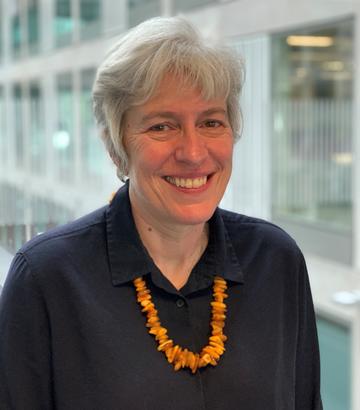We are very pleased that Dr Rachel Forsyth from Lund University in Sweden will present a keynote address and facilitate a workshop on redesigning summative assessments at the Teaching and Learning Symposium.
Rachel's biography

Dr Rachel Forsyth, Lund University, Sweden
Rachel is a project manager at Lund University in Sweden, carrying out a review of the pedagogic aspects of digital education development and the University's framework for appointments and promotions of academic staff.
Her recent book, Confident Assessment in Higher Education, is a practical, theory-informed resource for anyone in the higher education sector, offering guidance on contextual assessment design and the teaching that can support this, alongside a deep dive on marking, feedback and common assessment challenges.
Before moving to Sweden, she worked in UK higher education for over 30 years as an educational developer, with a focus on assessment, open learning, and inclusive practice.
She is a Principal Fellow of the Higher Education Academy and has taught on postgraduate programmes for teaching in higher education for 20 years, including leading a specialist module on assessment.
She is a member of the UK Advance HE Degree Standards Project team which has explored sector-owned processes for professional development of external examiners in the UK since 2017.
As Editor-in-Chief of the Student Engagement in Higher Education Journal since 2017, she is an active member of the Researching, Advancing, Inspiring Student Engagement (RAISE) network.
Rachel's keynote symposium presentation
Title: Redesigning summative assessments: fairness, reliability and validity.
Abstract: The observation that assessment in higher education has changed very little over time is frequently made, and partially accurate.
Assignment tasks which were commonplace in the nineteenth century, such as essays and unseen examinations, are still present in many university courses. This is not in itself a problem, but it is as important to review types of assessment as it is to review any other aspect of a course. Other aspects of the curriculum may have changed, students come with different experiences and expectations, and we now have a range of technologies available to us. We should regularly ask ourselves if summative assessment tasks and criteria should remain the same, and if so, how we can ensure that they are fair, reliable, and valid.
Making changes to assessment can be a daunting task, with multiple stakeholders to satisfy, and apparently complex regulations. However, it is also a landscape of myths and legends, handed down from generation to generation of academic staff.
Rachel’s keynote presentation will look at the basis for reviewing existing summative assessments and identify key factors to consider if you are reviewing your practices. Do you look forward to seeing, and marking, students' achievements? Is there a place for so-called authentic assignment tasks such as business presentations, clinical protocols, or scientific posters in place of some final exams? Is assessment purely a sorting and ranking tool, or is it integrated in the teaching process? Should there be a relationship between curriculum planning, assessment design, marking criteria, and feedback? What role does assessment play in building trust between student and teacher, and between student and institution? Who needs to be involved in assessment design and management?
Rachel's facilitated symposium workshop
Title: Redesigning summative assessments: getting started.
Abstract: You have reviewed your summative assessment planning, and you would like to make a change of some kind. Maybe you want to try a new task, to design new criteria, or to review your feedback practice. In this workshop you will start thinking about what is involved in summative assessment redesign systematically and take away some ideas to work on over the next few months.
How can you connect with Rachel?
Email: Rachel.forsyth@rektor.lu.se
Twitter: @rachelforsyth